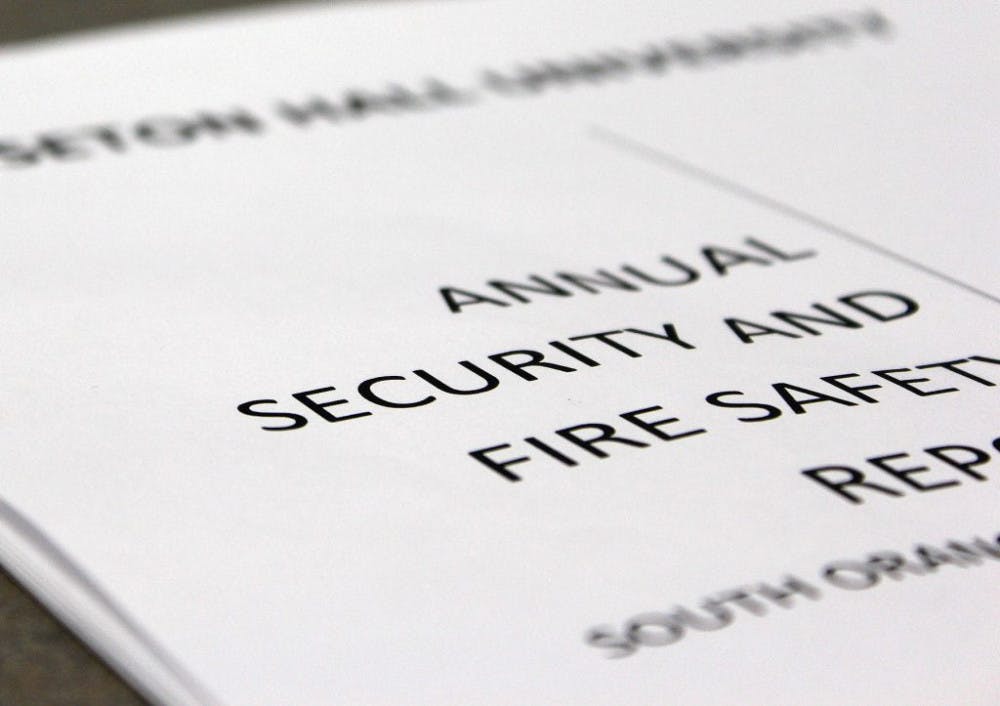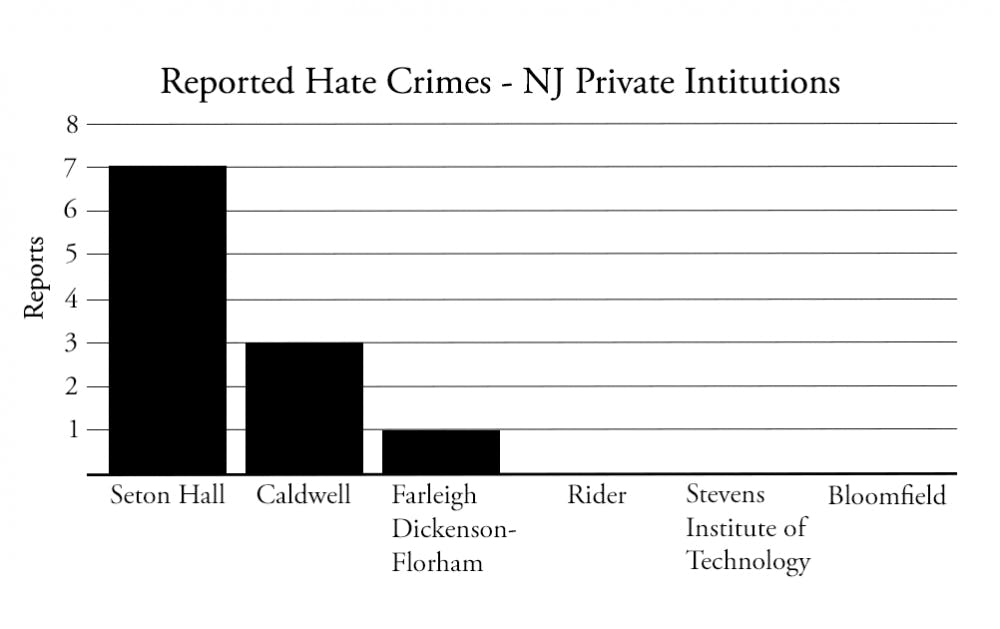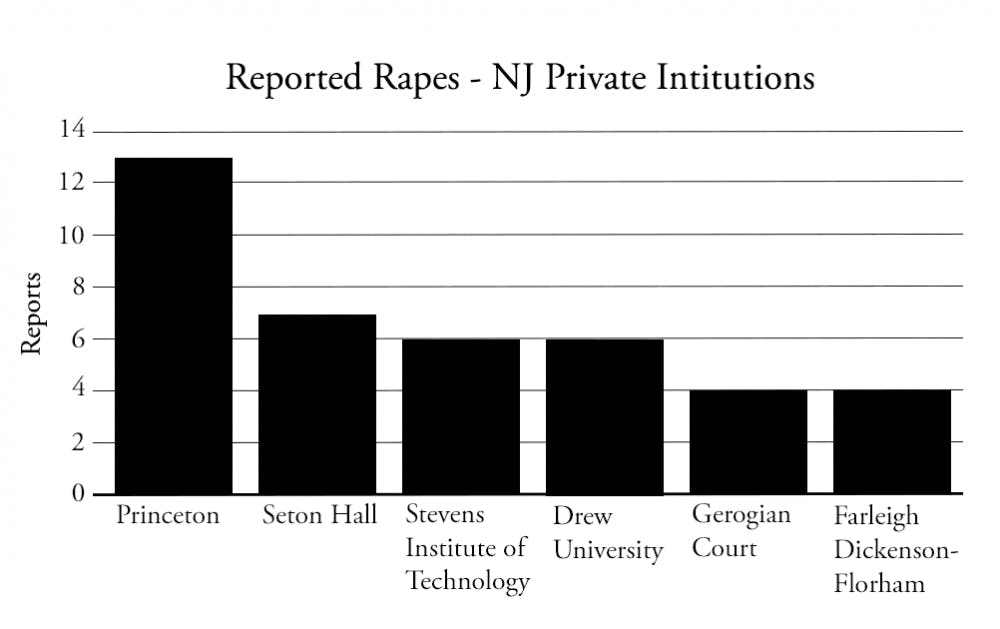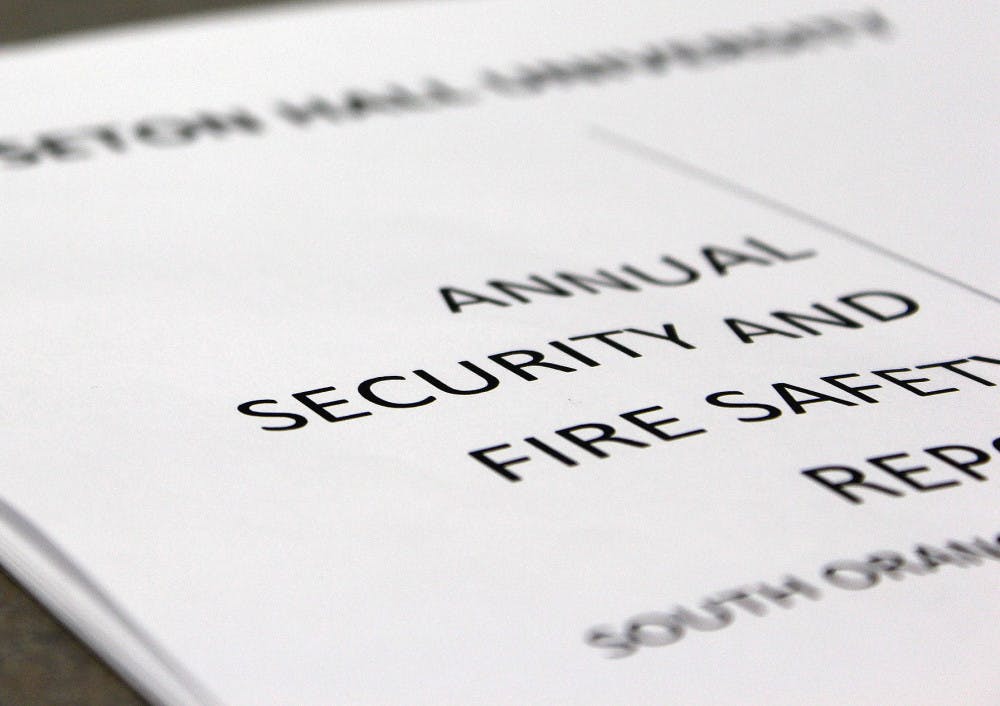Seton Hall ranks second in reported rapes among private New Jersey institutions, first in drug use violations
Seton Hall University released its 2019 Annual Security and Fire Safety Report last Tuesday, detailing an increase in reported on-campus rapes and hate crimes, as well as a sharp rise in drug abuse violations in 2018. The report, which contains statistics for several crimes, put reported rapes and hate crimes at seven while drug abuse violations doubled to 67.

When compared to other private schools in New Jersey, Seton Hall ranked second in reported rapes falling only behind Princeton, while ranking first in drug abuse violations and reported hate crimes, according to data from reports filed by other institutions to the Department of Education.
As mandated by law, all colleges and universities who receive federal money are required to submit an annual safety report to the DOE and typically show crime information from the preceding two years or more. Reports are required to be submitted to employees and students of the universities by Oct. 1 of each year. In addition to reporting crime data, universities are also mandated to include policy statements about efforts being taken to improve campus safety.
Ranking second among New Jersey private colleges and universities in reported rapes, Seton Hall also recorded the highest increase of reported instances of the crime – four more than in 2017 and five more than in 2016.

Nicole Giglia, director of KNOW MORE – Seton Hall’s in-house initiative to promote education about sexual violence prevention, alcohol and other drugs – attributed the increase in reported rapes to an increase in education about resources on campus.
“The more students know about resources and accommodations offered by the University, the more confident they are in reporting and encouraging others to do the same,” Giglia said.
Those sentiments were echoed by Director of Public Safety Patrick Linfante who said that he feels that mixture of the #MeToo movement and on-campus initiatives led by the Department of Student Life to make students more aware of resources has led to survivors feeling more comfortable and confident in reporting rape.

“I think more and more young women are coming forward today knowing that society is not going to blame them,” Linfante said, noting that some law enforcement agencies have also seen surges in reporting in the aftermath of the high profile allegations that have been leveled against men such as Harvey Weinstein. Linfante also encouraged more survivors to come forward and report, as well.
In 2018, the Bureau of Justice Statistics measured the rate of rape victimization as increasing from 1.6 to 2.7 victimizations per 1,000 persons age 12 or older from 2015 to 2018 – the only violent crime measured to have marginally increased in this period. These numbers have led some experts to suggest this increase stems from higher rates of reporting than in past years.
Rape reporting on college campuses is still lacking significantly, though. According to the Department of Justice, only 20% of female student survivors report their assaults to law enforcement.

Erinn Robinson, the press secretary for the Rape, Abuse and Incest Network – better known as RAINN – noted that any increase on campus is enough of an increase for concern, but said that it is still possible that the shift in rhetoric around rape survivors could have contributed to increased reporting, leading to higher numbers than typically recorded.
“We have definitely seen survivors feeling safer than ever,” Robinson said, “but it’s still hard to accurately gauge what the true numbers on campuses are.”
Though Robinson noted that she wasn’t aware of any empirical data that shows any models of what college campuses can do to increase their reporting rate, she said that the two things colleges can do right now is continue to promote resources and educate their students. She also emphasized that campuses continue to inform students of the “red zone,” referring to the first six weeks of college when freshmen women are at the highest risk of experiencing a sexual assault. According to a 2007 study from the Journal of American College Health, around 50% of college sexual assaults are estimated to take place within this period.
Like Seton Hall’s reported rape numbers, drug abuse numbers were also higher in 2018 than in prior years, doubling from 33 in 2017 to 67 – the highest increase among private schools – though Giglia asserted that analyzing data from the Annual Security Report was “not an accurate assessment” of actual drug use on campuses.
Linfante offered a different characterization of the data, though, saying that he feels that the numbers are more so reflective of the current atmosphere around opioids in America, although he pointed out that Seton Hall’s drug abuse violations were predominately related to marijuana.
Still, Linfante pointed to the present narrative around drugs, as well as New Jersey’s possible impending legalization of pot, as sources of the enlarged numbers because it has made marijuana use more socially acceptable than in the past.
With regard to the uptick in hate crimes, Seton Hall also saw the largest numbers among private New Jersey institutions, as well as the largest overall increase in this category. It was the only institution to have numbers reported over three.
According to the report of the seven hate crimes, three were based on sexual orientation, two were based on race and two were based on religion. Five of the seven incidents were intimidation and two were vandalism.
Again, Linfante pointed to overall divisive rhetoric in the country as the reasoning behind the uptick.
“The country is divided,” he said, noting that the people who commit these crimes are “cowards.”
Nicholas Kerr can be reached at nicholas.kerr@student.shu.edu. Find him on Twitter @NickKerr99.





